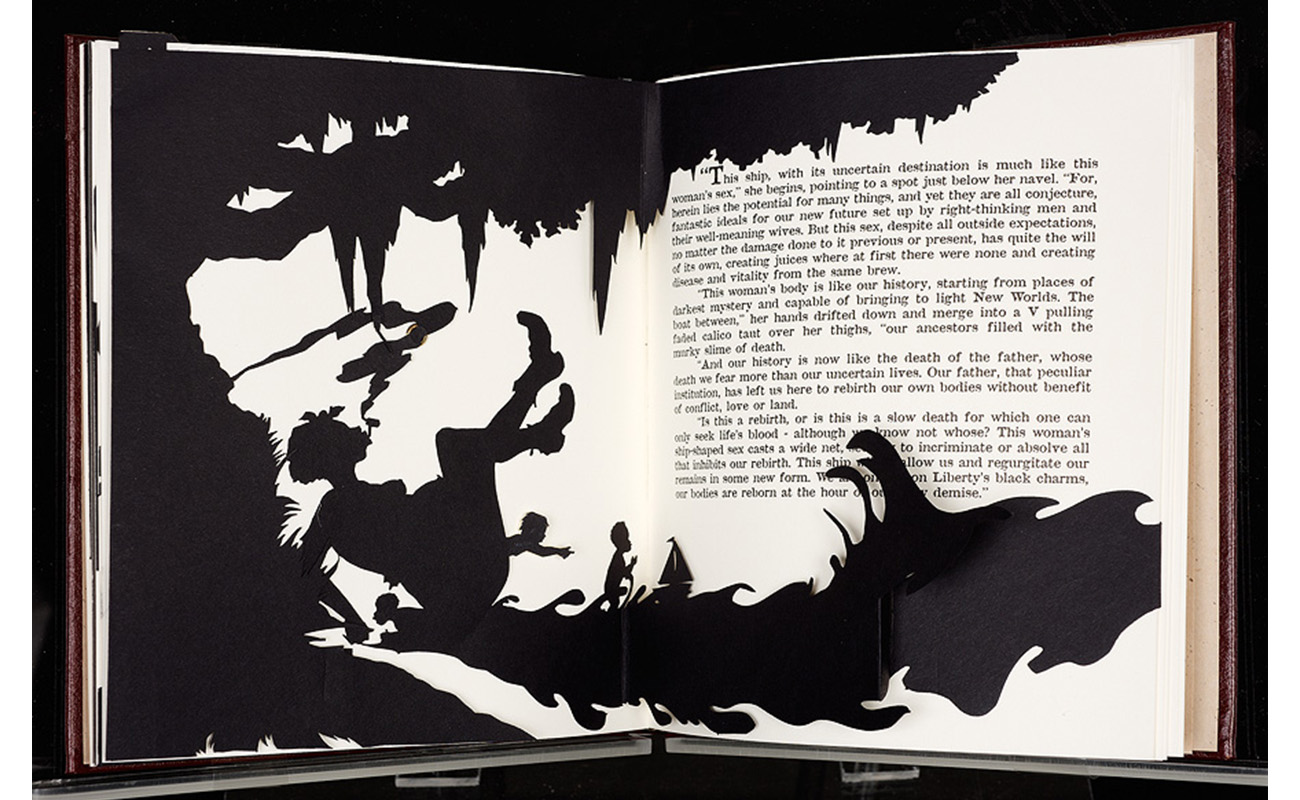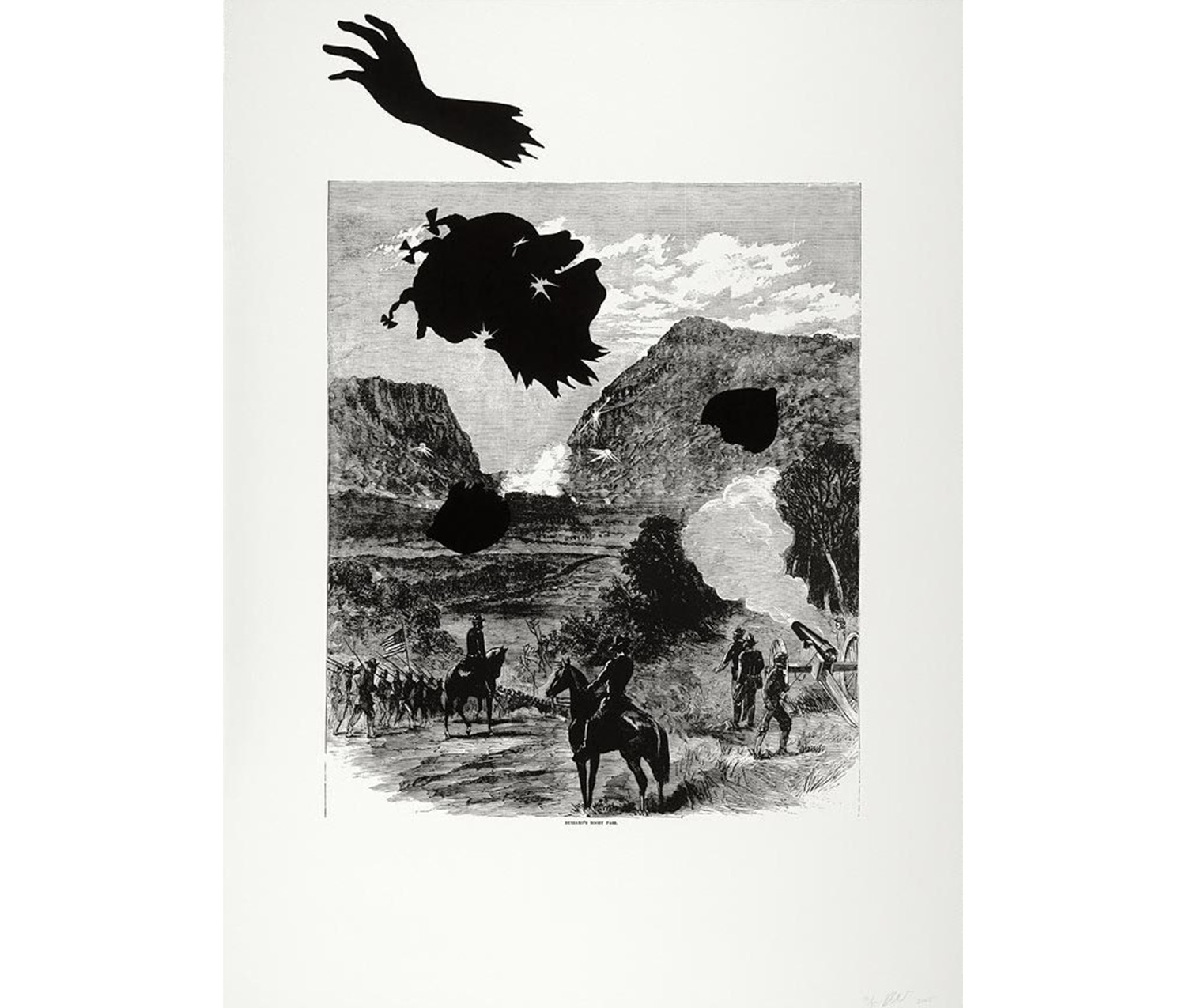
Contemporary Black Women Artists in the Cunningham Center: Kara Walker
Guest blogger Zoe Dong is a Smith College student, class of 2018J, with a major in studio art. She is a Student Assistant in the Cunningham Center for the Study of Prints, Drawings, and Photographs. This is the second of a three-post series on contemporary works by Black women in the Center's collection.
Kara Walker was born in 1969 in California, the daughter of a painter father. She received her MFA from the Rhode Island School of Design in 1994 and then skyrocketed to national attention the same year when she debuted a mural called Gone, An Historical Romance of a Civil War as It Occurred Between the Dusky Thighs of One Young Negress and Her Heart. Just a few years after at the age of 27, she became one of the youngest people in history to receive a MacArthur genius grant. Working in stylized, cartoonish, delicately cut-paper silhouettes (an art form she has described as “sort of forgotten and small, female and domestic”), Walker’s work explores the violences of the history of slavery in the American antebellum South as she creates elaborate scenes of outlined slaves and masters, oppressors and the oppressed.
Her art has been lauded by many as being fearless in its discussion of sexual violence, exploitation and pain suffered by slaves, but has also been criticized, notably by prominent African-American artist Betye Saar. Saar called Walker’s work "revolting and negative and a form of betrayal to the slaves...[and] basically for the amusement and investment of the White art establishment" in 1999. Walker’s 2010 work The moral arc of history ideally bends towards justice but just as soon as not curves back around toward barbarism, sadism, and unrestrained chaos also stirred discussion and made national news when the library it was displayed at, the Newark Public Library, was so offended by its portrayal of oral sex that they covered the piece with a cloth that visitors had to lift to view. Whether one finds her work enlightening or degrading, truthful or harmfully stereotypical, Walker stands as an important figure in contemporary American art.
Freedom, a Fable: A Curious Interpretation of the Wit of a Negress in Troubled Times (shown above) is one of the artist’s books in the collection. Made in 1997, Freedom, a Fable places Walker’s signature cut paper work into a pop-up book, telling the life story of a formerly enslaved woman.
The Cunningham Center also owns several pieces from the Harper’s Pictorial History of the Civil War (Annotated) series.

Kara Elizabeth Walker. American, born 1969. Harper’s Pictorial History of the Civil War (Annotated), Buzzard’s Roost Pass…, 2005. Offset lithography and screenprint on Somerset Textured paper. Purchased with the Dorothy C. Miller, class of 1925, Fund. SC 2010.64.3.
In these large-scale lithograph/screenprints, Walker has placed silhouettes of portraits of slaves over reproductions of 1866 illustrations of the Civil War from Harper’s Magazine. With these works, Walker aims to bring to the forefront the histories left out of textbooks, the stories of the Civil War that have not been glorified by mainstream white American history.